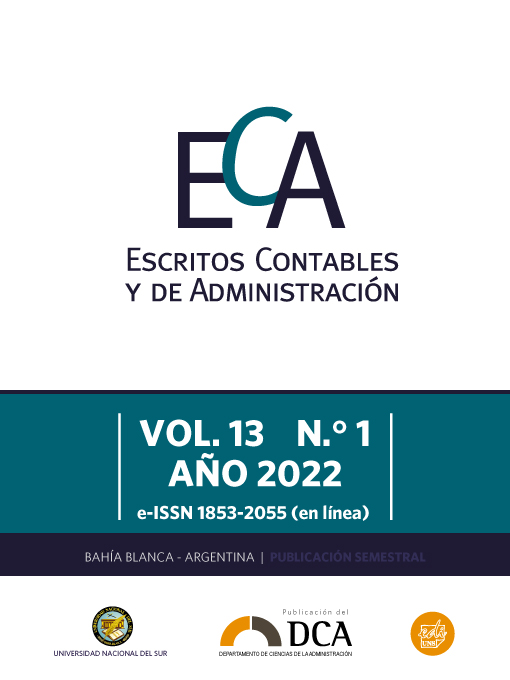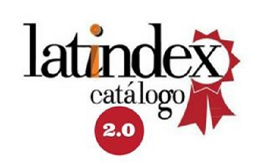Analysis of the relevance of accounting information
DOI:
https://doi.org/10.52292/j.eca.2022.2834Keywords:
vital corporate purpose, systematic economic information, non-economic social purpose, presumptive communication, inconsistent social appreciationAbstract
style="text-align: justify;">This paper describes a process of reflection on practices that seek to assign to Accounting tasks that compromise its informative function and analyzes the effects of intervening in areas outside its competence. The arguments are based on the reason that universally drives people in their vital actions of existence and growth, to organize themselves with such purpose of sustainability. They also show that Accounting fulfills the objective of being an explanatory instrument to guarantee the fulfillment of the company’s purpose because its own system allows reflecting the quantitative valuation of wealth, its evolution, and comparison. There is an explanation of the behavior that guarantees the proper fulfillment of this economic activity as well as a demonstration of the failure to assign to Accounting the ability to express a social non-economic purpose, to identify environmental damage that the company could cause and to formulate policies on the future of the companies.
Downloads
References
Arreghini, H. R. (2014). Unidad de criterio necesaria para la valoración informativa. Profesional & Empresaria D&G, 15(181), 1109-1119.
Chapman, W. L. (1981). Dificultades para medir la cuantía del beneficio social neto de la actividad económica de las empresas públicas y privadas. Anales de la Academia Nacional de Ciencias Económicas, 26, 57-78. https://anceargentina.org/site/trabajos/Anales%201981.PDF
Chapman, W. L. (1982). El consumidor como beneficiario social de la actividad empresaria. Anales de la Academia Nacional de Ciencias Económicas, 27, 39-64. http://www.anceargentina.org/site/trabajos/Anales%201982.PDF
Chapman, W. L. (1988). El desarrollo de la contabilidad social en América Latina [ponencia]. V Conferencia de Facultades y Escuelas de contaduría de América Latina. IV Congreso Latinoamericano de investigación contable. Esquel, Argentina.
Corbetta, P. (2007). Metodología y técnicas de investigación social. McGraw-Hill/Interamericana.
Levy, A. (2013). Estrategia/La razón y la emoción. Consejo Profesional de Ciencias Económicas de la Ciudad de Buenos Aires.
Magdalena, F. G. (1999). Introducción a la problemática de los sistemas. En J. C. Gómez Fulao y F. G. Magdalena (Eds.), Sistemas administrativos (cap. 10, pp.310-347), Macchi Grupo Editor.
Mattessich, R. (2002). Contabilidad y métodos analíticos. Medición y proyección del ingreso y la riqueza en la microeconomía y en la microeconomía. La Ley.
Pastor, S. y Jugón, M. (4-6 de noviembre, 2015). Organización sustentable. El principio contable que reemplaza empresa en marcha [ponencia]. XXXVI Jornadas Universitarias de Contabilidad y V Jornadas Universitarias Internacionales de Contabilidad. Buenos Aires, Argentina.
Savater, F. (2005). La infancia recuperada, Santillana.
Símaro, J. D., Tonelli, O. M. y Carús-Ribalaygua L. (2012). Gestión de intangibles en Pymes turísticas. Estudios y Perspectivas en Turismo, 21, 249-269.
Símaro, J. D., Tonelli, O. M. y Tesoro, J. L. (octubre, 2012). El capital intelectual en las instituciones de educación superior [ponencia]. XXXIII Jornadas Universitarias de Contabilidad. Tucumán, Argentina.
Símaro, J. D., Tonelli, O. M. y Tesoro, J. L. (24-26 de septiembre, 2014). La gobernanza de las universidades estatales: las directrices Meritum para la gestión del capital intelectual [ponencia]. XXXV Jornadas Universitarias de Contabilidad. San Juan, Argentina.
Valentini, G. y Arroyo, L. (2003). La injertación en frutales. Boletín de Divulgación Técnica / EEA San Pedro, (14), 1-14. https://repositorio.inta.gob.ar/xmlui/handle/20.500.12123/6481
Published
How to Cite
Issue
Section
License
Copyright (c) 2022 Hugo Ricardo Arreghini

This work is licensed under a Creative Commons Attribution-NonCommercial 4.0 International License.
Aviso de derechos de autor
Aquellos autores/as que tengan publicaciones con esta revista, aceptan los términos siguientes:
- Los autores/as conservarán sus derechos de autor y garantizarán a la revista el derecho de primera publicación de su obra, el cual estará simultáneamente sujeto a la licencia Atribución-No Comercial 4.0 Internacional CC BY-NC 4.0.
- Los autores/as podrán adoptar otros acuerdos de licencia no exclusiva de distribución de la versión de la obra publicada (p. ej.: depositarla en un archivo telemático institucional o publicarla en un volumen monográfico) siempre que se indique la publicación inicial en esta revista.
- Se permite y recomienda a los autores/as difundir su obra a través de Internet (por ej.: en páginas web institucionales o personales) una vez publicado su trabajo, lo cual puede producir intercambios interesantes y aumentar las citas de la obra publicada (Véase El efecto del acceso abierto).





















